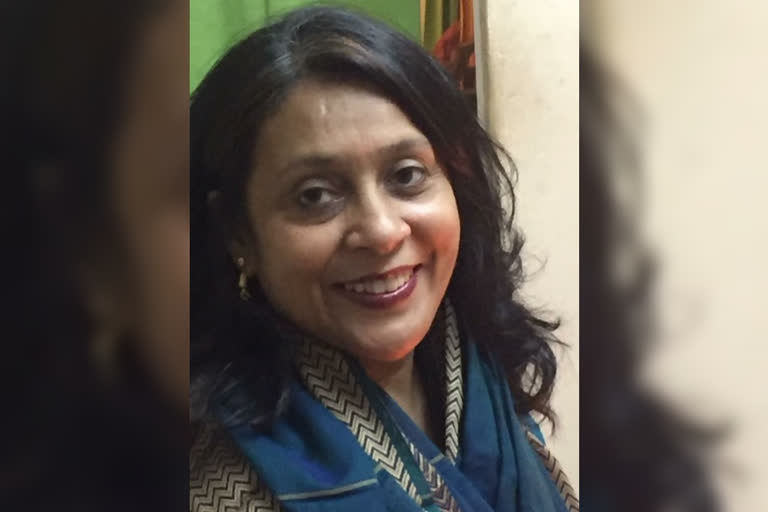- Do you think the inception of the current crisis in Ukraine lies in the continuing eastward expansion of NATO, contrary to what was promised to Russia by the United States in the post soviet period that NATO would not expand eastward?
Prof. Bhaswati Sarkar:President Putin has been repeatedly putting across Russia’s security concerns regarding NATO expansion for many years now. Actually, for Russia, these concerns have always been there from the early days of Soviet disintegration. Even when President Yeltsin was talking of Russia’s participation in the North Atlantic Cooperation Council (NACC) suggesting that Russia could someday become a NATO member and approved of NATO enlargement to Poland and the Czech Republic, he was criticised by the Russian parliament and the military. Russian Foreign Minister Kozyrev argued NATO was one aspect of European security and called for a new security system based on the Conference on Security and Cooperation in Europe (CSCE) (today’s OSCE) and suggested NATO subordinate itself to this CSCE, NATO rejected this. In other words even in Russia-Europe/West "honeymoon period" there were concerns with NATO. But time and again it was clear that Russia’s concerns were not being taken on board. Clinton for instance made it clear that NATO enlargement would not depend on the appearance of a new threat in Europe. So irrespective of how Russia acted enlargement would proceed, for Russia, this was a dilemma – should it move closer or turn away. It opted to move closer – relation with NATO was formalised through the Partnership for Peace Programme. Russia also presented conditions like – no deployment of nuclear weapons and no allied combat forces in the territory of new member states and this NATO agreed to. The NATO-Russia Founding Act of 1997 and the Permanent Joint Council is a forum for regular consultations of NATO members and Russian officials on security issues.
A turning point in NATO-Russia relations was the Yugoslav war and the airstrikes without UN authorisation ignoring Russia’s reservations. During Putin’s first Presidency he spoke of rebuilding relations based on pragmatism and even membership. Following the 11 September attacks, Putin extended support to US and allies in Afghanistan. But NATO enlargement and the Iraq war were sticking points. Relations further deteriorated in Putin’s second term and the colour revolutions and Russia’s war in Georgia 2008. In the Bucharest summit 2008 Ukraine, Georgia membership was on the agenda, Rogozin was Russia’s ambassador to NATO conveyed Russian strong reservation in no uncertain terms of political and military consequences. I think the West has not paid attention to the Russian concerns and we have reached where we are today, it has been in the making.
- Do you think Putin's goal would be an expansion of regional dominance?
Prof. Bhaswati Sarkar:Putin wants to do more than that, he wants to establish Russia as a global player, if you see his speeches in the last few days and even before that 2009, he has been invoking Russian history and has already stated upfront that the disintegration of Soviet Union was a tragedy.
- Since World War II there have been dozens of wars, do you think the present one is different from almost all of them?
Prof. Bhaswati Sarkar:Yes in many ways it is. It is in Europe, a Europe which embarked on European integration to put an end to the possibility of War. War, state sovereignty, inviolability of borders are all a reality now.
- Why is Russia moving so aggressively against Ukraine? any immediate threat to Russian security from NATO?
Prof. Bhaswati Sarkar:As I mentioned Russia has been articulating concern of NATO enlargement for long. Since the 2014 crisis and Russia’s annexation of Crimea, NATO increased its presence in the Black Sea region and has stepped up cooperation with Ukraine and Georgia. Following the 2016 NATO summit in Warsaw, NATO stepped-up practical support to Ukraine with the comprehensive assistance package and as the NATO chief is time and again reiterating it has helped train Ukrainian forces, he says they are not what they were in 2014. So they will not put NATO forces on the ground but in a way they are present. That is why we hear Putin saying the de-militarisation of Ukraine is an objective.
NATO is galvanising its forces and strengthening its presence in the Eastern frontier states but it gets activated only if Russia breaches NATO security by invading a NATO member state. And there is nothing that Russia stands to gain by doing that.
- How widespread could this conflict get? could this conflict lead to nato expansion? What are the consequences of the present crisis?
Prof. Bhaswati Sarkar:No, I don’t think that this conflict would lead to NATO expansion, NATO enlargement has certain conditions and it does not take in countries that are already embroiled in conflict. One immediate consequence appears to be the divisions within European Union and NATO narrowing and states are coming together in response to the crisis. Nord Stream II which many European states and particularly the US had strong objections to has been suspended. During the post-Crimea sanctions Prime Minister Orban of Hungary, President Zemen of the Czech republic were vocal against them. But now European Union is presenting a united front in response to Putin’s invasion. The conflict would in my reading be confined to Ukraine, Russia would not move towards Eastern Europe which is already NATO members and would elicit a NATO military response.
- Why has the United States been so actively engaged in this crisis?
